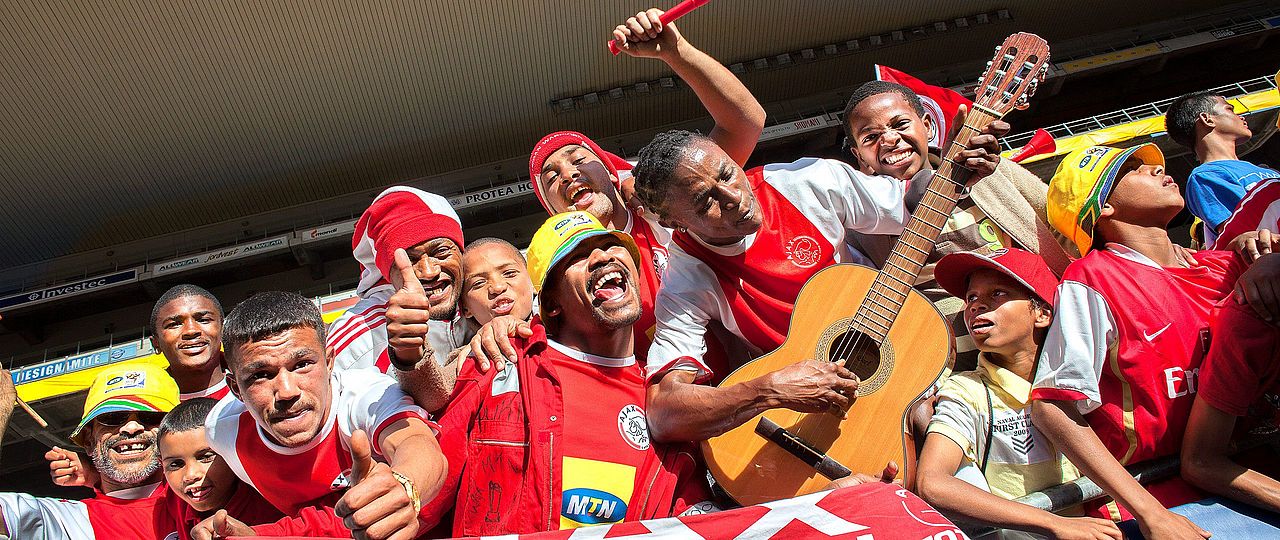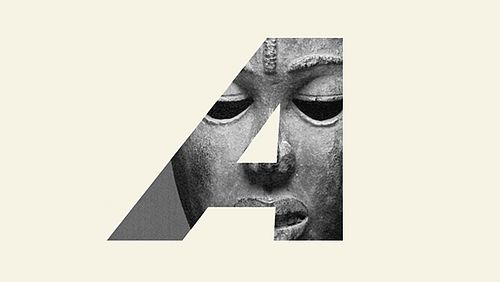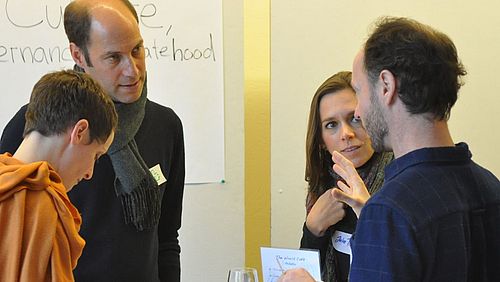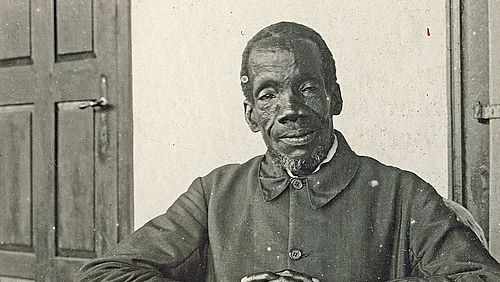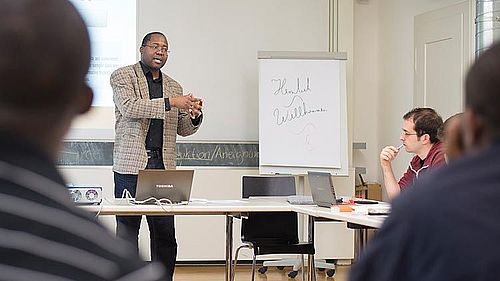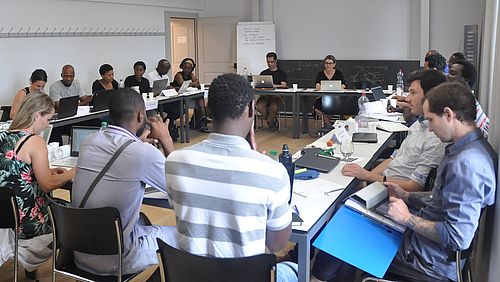MA African Studies – a trans-regional and interdisciplinary focus on Africa
We study Africa to acquire knowledge about the continent and to understand our world. The MA African Studies program helps students develop knowledge about Africa’s past, current and future role in framing the globalized world. It also encourages them to critically engage with global knowledge production and the representation of reality.
Colonial conquest and suppression has caused immense hardship for some and immeasurably benefitted others. The noble intentions of the ‘civilizing mission’ the colonizers’ put forward distracted from the exploitation of human and natural resources. Their actions contradict the values and ideals they transported. These were based on an idealized imagination of their society at home and notions of superiority, which persist to the present day. It is important to critically reflect on the effect and the importance of these values for our world.
Why African Studies?
The movement of people, the expansion of trade through the exploitation of human and natural resources, colonial conquest and evangelization, among others, have been framing the globalized world. Africa has occupied a central role in this process. The proper assessment of this role requires critical scientific knowledge and skills. Science gives us the theoretical, conceptual, and methodological tools which render the world intelligible. Yet, applying these tools to Africa and, more broadly, to trans-regional and global relations, reveals practical shortcomings and normative constraints. For us, African Studies is a critical inquiry into how we produce knowledge and how easily we can misrepresent reality if we take our tools and the knowledge they help produce for granted.
Since 2002, the Centre for African Studies Basel (ZASB) has been offering a specialized interdisciplinary Master’s Degree in African Studies drawing on the social sciences, humanities, and natural sciences. Key thematic fields are media and imagination, knowledge production and transfer, governance and politics, public health and social life, and environment and development. All of these are brought to bear on the urgent task of educating critical and inquiring minds.
All about the MA African Studies
Find the relevant information, documents and contacts for the Master's Degree Program in African Studies on the website of the Faculty of Humanities and Social Sciences.
Application and admission
The application deadline for the fall semester 2024 is 30 April 2024. Applications for admission to the Master Studies are submitted online via the University of Basel website. We recommend checking the conditions for admission with the course coordinator in advance.
Contact
International Students
Please note that in the case of international students the letter of admission is often only issued a month before the start of lectures. Since the application process for a study permit can take up to 4 months, international students sometimes have to postpone the start of their studies to the folllowing semester.
For a successful visa application a proof of sufficient financial means to cover the cost of your living and studying (CHF 2000.-/month) is required. As a rule the embassy will expect a bank draft of an account in the applicant's name containing the funds required for the first 9 monhts of your studies in combination with a letter explaining in a transparent and plausible way, that funding is sustainable for the chole duration of the studies (24 months).
Before filing your application for admission we recommend you contact the course coordinator for a preliminary assessment of your application documents.
Master's theses can be accessed at the Executive Office of the ZASB.
Das Zentrum für Afrikastudien Basel (ZASB) koordiniert die Lehre und Forschung zu Afrika an der Universität Basel und ihren Partnerinstitutionen. Das ZASB ist ein international anerkanntes Zentrum für interdisziplinäre Afrikaforschung und bietet einen Master und ein Doktorat in Afrikastudien sowie ein Weiterbildungsprogramm an.
Aktuelles
Veranstaltungen
Ort: Alte Universität, Rheinsprung 9, 4051 Basel
Veranstalter:
Centre for African Studies, Faculty of Theology, DGMW
Symposium: Epochale Wandlungsprozesse. Südverschiebung des Christentums und ihre Auswirkungen
Symposium für Andreas HeuserOrt: Verso Bar, Kollegienhaus, Petersgraben 50
Veranstalter:
Centre for African Studies and Faculty of Theology
Party with the Black Earth Band (free admission)
Please join us at the Verso Bar for a party with the Black Earth BandOrt: Rheinsprung 21, CH-4051 Basel
Veranstalter:
Zentrum für Afrikastudien
Semester-Apéro of the Centre for African Studies
The traditional meet'n'greet event for staff, students and associatesOrt: Online via Zoom
Veranstalter:
Mission 21
Webinar: "Die Würde der Erde – Indigene Verbundenheit mit dem Land"
Webinar "Global Voices – Acting Together for Peace"News
Job-Börse
Das Zentrum für Afrikastudien Basel
Studium und Weiterbildung
Kontakt
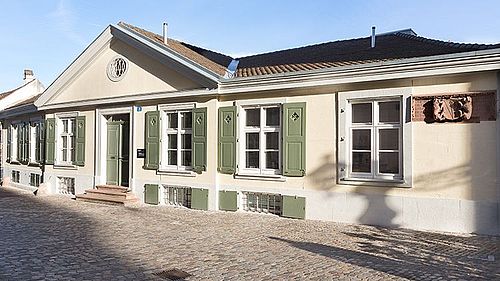
Universität Basel
Zentrum für Afrikastudien Basel
Rheinsprung 21
4051 Basel
Schweiz
Tel: +41 (0)61 207 34 82
So finden Sie uns:
Das ZASB ist gut mit dem öffentlichen Verkehr erreichbar. Von den Haltestellen Schifflände (Tram 6/8/11/14/16, Bus 34/36) und Kunstmuseum (Tram 1/2) benötigen Sie zu Fuss rund 5 Minuten.
Further information
- Studies at the University of Basel
- Course directory of the University of Basel
- Open Auditorium - refugees as course auditors
- Skuba – Student Union of the University of Basel
- Bachelor and Master programmes at the Swiss TPH
- Studies at the Faculty of Humanities and Social Sciences
- Studies at the Faculty of Science
- Support Services and Ombudsman's Office of the University of Basel



